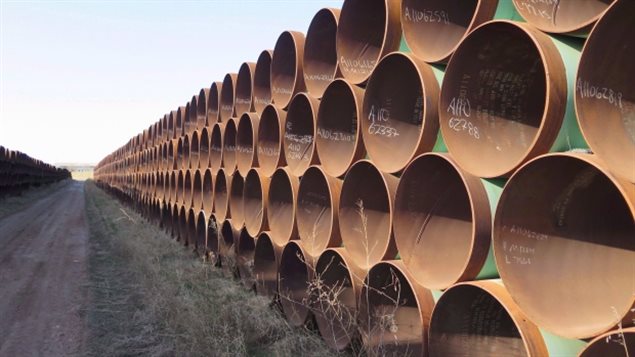Environmental groups are raising new warnings about the impact of the proposed Energy East pipeline project that backers hope will be up and running by 2020, carrying oil from Alberta to New Brunswick.
In a report, the U.S. Natural Resources Defence Council, a New York-based non-profit international environmental advocacy group, says the pipeline would increase tanker traffic from Canada’s East Coast to the U.S. Gulf Coast by 300 to 500 per cent, raising the the risk of a large oil spill.
The report, prepared with the help of–among others–Greenpeace, the Sierra Club and the Conservation Council of New Brunswick, says the pipeline creates “extraordinary threats” to the U.S. East Coast and Canada’s Bay of Fundy.
The pipeline, built by Calgary-based energy corporation TransCanada, would be constructed by converting an existing natural gas pipeline to one suited for oil transportation, as well as building new sections of pipeline to complete the route.
Once completed, It could carry 1.1 million barrels of oil a day.
The estimated cost of construction: $15.7 billion.
Reacting to the report, TransCanada released a statement saying it was a pipeline transporter and not and owner or operator of ships.
The statement noted that comprehensive rules around marine tanker activity are already in place and it is working with various groups to ensure safe operation of the proposed export terminal at Saint John, N.B.
The Energy East project must still be approved by Canada’s National Energy Board, but that is no sure thing as Canadians remain divided on the project.
Backers say it would be an economic boon.
Others say the environmental risks are too great.
With CBC and CP files.







For reasons beyond our control, and for an undetermined period of time, our comment section is now closed. However, our social networks remain open to your contributions.